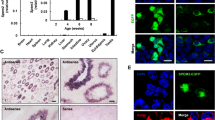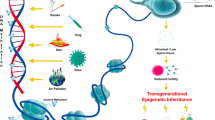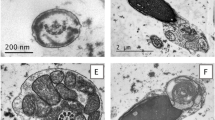Abstract
Genes of different pathways regulate spermatogenesis, and complexity of spermatogenic process indicates that polymorphisms or mutations in these genes could cause male infertility. Detoxification pathway is involved in the regulation of spermatogenesis by reducing oxidative stress and contributes to the maintenance of global methylation in concert with other pathways. Glutathione S-transferases (GSTs) belong to the family of phase II antioxidant enzymes involved in the cellular detoxification of various physiological substances. Glutathione S-transferases act as an antioxidant and protect spermatozoa from oxidative stress. Increase in the levels of reactive oxygen species (ROS) along with reduced activity of GSTs may result in sperm membrane damage and DNA fragmentation. A case–control study was done to elucidate the role of deletion polymorphism of GSTT1 and GSTM1 genes from GSTs family on idiopathic human male infertility. The study comprises 2 groups: 113 nonobstructive azoospermia patients and 91 healthy fertile controls. Genomic DNA was analyzed by polymerase chain reaction for GSTT1 and GSTM1 genes. The study showed statistically significant protective association of GSTT1 null genotype with human male infertility (odds ratio [OR]: 0.3, 95% confidence interval [CI] 0.143-0.9966, P = .048) but not with GSTM1 null genotype (OR: 0.66, 95% CI 0.3653-1.2234, P = .19). Also, combination of null genotypes of GSTM1 and GSTT1 confers protective effect (OR: 0.28, CI 0.0801-0.948; P = .04). Probably, individuals bearing GSTM1 and GSTT1 (−/−) genotypes may have protective effect by gene–gene interaction mechanism. In summary, our study underscores the significance of combined effect of GSTT1 and GSTM1 null genotypes in modulating the risk of male infertility.
Similar content being viewed by others
References
Matzuk MM, Lamb DJ. The biology of infertility: research advances and clinical challenges. Nat Med. 2008;14(11): 1197–1213.
Matzuk MM, Lamb DJ. Genetic dissection of mammalian fertility pathways. Nat cell Biol. 2002; (suppl 4):S41–S49.
McLachlan RI, Bryan MK. State of the art for genetic testing of infertile men. J Clin Endocrinol Metab. 2010;95(3):1013–1024.
Nachtigall RD. International disparities in access to infertility services. Fertil Steril. 2006;85(4):871–875.
Merzenich H, Zeeb H, Blettner M. Decreasing sperm quality: a global problem? BMC Public Health. 2010;10:24.
Lewis SEM, Aitken RJ. DNA damage to spermatozoa has impacts on fertilization and pregnancy. Cell Tissue Res. 2005;322(1): 33–41.
Shamsi MB, Venkatesh S, Kumar R, et al. Antioxidant levels in blood and seminal plasma and their impact on sperm parameters in infertile men. Indian J Biochem Biophys. 2010; 47(1):38–43.
Finotti AC, Costa E Silva RC, Bordin BM, Silva CT, Moura KK. Glutathione S-transferase M1 and T1 polymorphism in men with idiopathic infertility. Genet Mol Res. 2009;8(3): 1093–1098.
Rubes J, Selevan SG, Sram RJ, Evenson DP, Perreault SD. GSTM1 genotype influences the susceptibility of men to sperm DNA damage associated with exposure to air pollution. Mutat Res. 2007;625(1–2):20–28.
Babu KA, Rao KL, Kanakavalli M K, Suryanarayana VV, Deenadayal M, Singh L. CYP1A1, GSTM1 and GSTT1 genetic polymorphism is associated with susceptibility to polycystic ovaries in South Indian women. Reprod Biomed Online. 2004;9(2): 194–200.
Ding Y, Chen ZF, Lin RY, et al. Relationship between endometriosis and glutathione S-transferase M1, T1 genes of the Uygurs and Hans in Xinjiang [in Chinese]. Zhonghua Fu Chan Ke Za Zhi. 2004;39(2):101–104.
Sergentanis TN, Economopoulos KP. GSTT1 and GSTP1 polymorphisms and breast cancer risk: a meta-analysis. Breast Cancer Res Treat. 2009;121(1):195–202.
Gopalakrishnan B, Shaha C. Inhibition of sperm glutathione S-transferase leads to functional impairment due to membrane damage. FEBS Lett 1998;422(3):296–300.
Strange RC, Spiteri MA, Ramachandran S, Fryer AA. Glutathione-Stransferase family of enzymes. Mutat Res. 2001; 482(1–2):21–26.
Pemble S, Schroeder KR, Spencer SR, et al. Human glutathione S-transferase Theta (GSTT1): cDNA cloning and the characterization of a genetic polymorphism. Biochem J. 1994;300(pt 1): 271–276.
Castellon EA. Influence of age, hormones and germ cells on glutathione S-transferase activity in cultured Sertoli cells. Int J Androl. 1999;22(1):49–55.
Zamudio NM, Chong S, O’Bryan MK. Epigenetic regulation in male germ cells. Reproduction. 2008;136(2):131–146.
Zhong S, Wyllie AH, Barnes D, Wolf CR, Spurr NK. Relationship between the GSTM1 genetic polymorphism and susceptibility to bladder, breast and colon cancer. Carcinogenesis 1993;14(9): 1821–1824.
Katoh T, Nagata N, Kuroda Y, et al. Glutathione S-transferase M1 (GSTM1), and T1 (GSTT1) genetic polymorphism and susceptibility to gastric and colorectal adenocarcinoma. Carcinogenesis. 1996;17(9):1855–1859.
Erdfelder E, Faul F, Buchner A. G*POWER: A general power analysis program. Behav Res Meth Instrum Comput. 1996;28: 1–11.
Mann CL, Davies MB, Boggild MD, et al. Glutathione S-transferase polymorphisms in MS: their relationship to disability. Neurology 2000;54(3):552–557.
Pasqualotto FF, Sharma RK, Nelson DR, Thomas AJ, Agarwal A. Relationship between oxidative stress, semen characteristics and clinical diagnosis in men undergoing infertility investigation. Fertil Steril. 2000;73(3):459–464.
Agarwal A, Said TM. Oxidative stress, DNA damage and apoptosis in male infertility: a clinical approach. BJU Int. 2005;95(4): 503–507.
Polonikov AV, Yarosh SL, Kokhtenko EV, Starodubova NI, Pakhomov SP, Orlova VS. The functional genotype of glutathione S-transferase T1 gene is strongly associated with increased risk of idiopathic infertility in Russian men. Fertil Steril. 2010;94(3): 1144–1147.
Wu QF, Xing JP, Tang KF, et al. Genetic polymorphism of glutathione S-transferase T1 gene and susceptibility to idiopathic azoospermia or oligospermia in northwestern China. Asian J Androl 2008;10(2):266–270.
Safarinejad MR, Shafiei N, Safarinejad S. The association of glutathione-S-transferase gene polymorphisms (GSTM1, GSTT1, GSTP1) with idiopathic male infertility. J Hum Genet. 2010; 55(9):565–570.
Dordevic V, Nikolic A, Ljujic M, et al. Combined effect of GSTM1 gene deletion, GSTT1 gene deletion and MTHFR C677T mutation in male infertility. Arch Biol Sci. 2010;62(3):525–530.
Dhillon VS, Shahid M, Husain SA. Associations of MTHFR DNMT3b 4977 bp deletion in mtDNA and GSTM1 deletion, and aberrant CpG island hypermethylation of GSTM1 in nonobstructive infertility in Indian men. Mol Hum Reprod. 2007; 13(4):213–222.
Vani GT, Mukesh N, Siva Prasad B, et al. Role of glutathione S-transferase Mu-1 (GSTM1) polymorphism in oligospermic infertile males. Andrologia. 2009;42(4):213–217.
Khazamipour N, Noruzinia M, Fatehmanesh P, Keyhanee M, Pujol P. MTHFR promoter hypermethylation in testicular biopsies of patients with non-obstructive azoospermia: the role of epigenetics in male infertility. Hum Reprod. 2009;24(9):2361–2364.
Singh K, Singh SK, Sah R, Singh I, Raman R. Mutation C677T in the methylenetetrahydrofolate reductase gene is associated with male infertility in an Indian population. Int J Androl. 2005; 28(2):115–119.
Paracchini V, Garte S, Taioli E. MTHFR, C677T polymorphism, GSTM1 deletion and male infertility: a possible suggestion of a gene-gene interaction? Biomarkers. 2006;11(1):53–60.
Economopoulos KP, Sergentanis TN, Choussein S., Glutathione-S-transferase gene (GSTM1, GSTT1 and GSTP1) and idiopathic male infertility: novel perspectives versus facts. J Hum Genet. 2010;55(9):557–558.
Author information
Authors and Affiliations
Corresponding author
Rights and permissions
About this article
Cite this article
Jaiswal, D., Sah, R., Agrawal, N.K. et al. Combined Effect of GSTT1 and GSTM1 Polymorphisms on Human Male Infertility in North Indian Population. Reprod. Sci. 19, 312–316 (2012). https://doi.org/10.1177/1933719111424451
Published:
Issue Date:
DOI: https://doi.org/10.1177/1933719111424451




